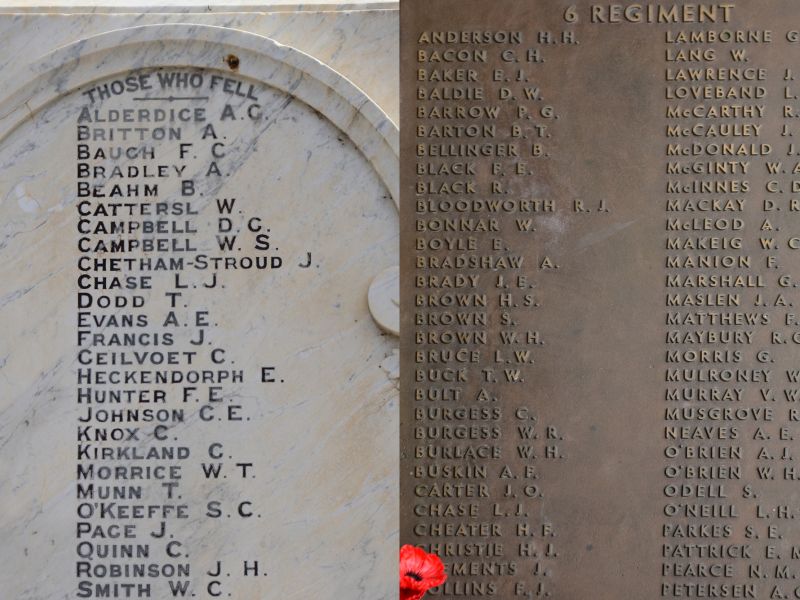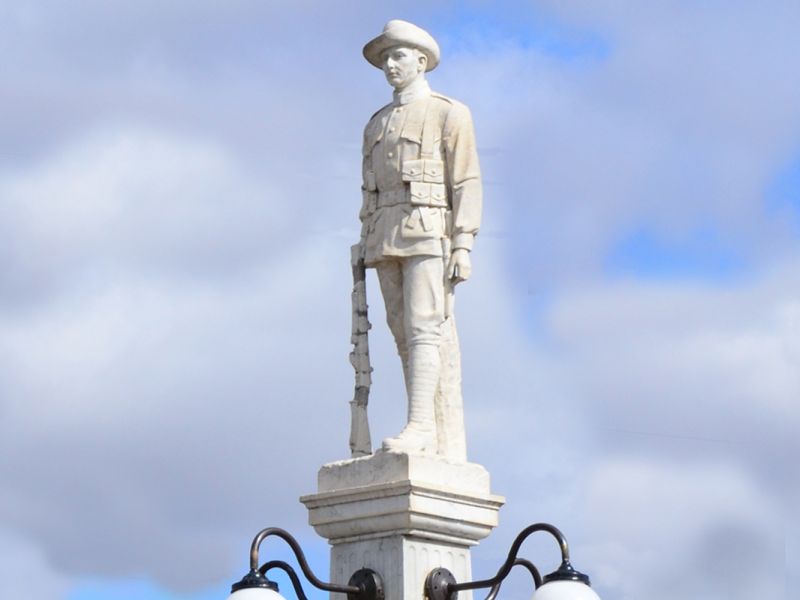On the last day-
The dawning of 11November, 1918, heralded for many the Armistice that was soon to come into effect. The eleventh hour of the eleventh day of the eleventh month signalled the end to the fighting of the worst conflict the world had known to that date. Although most of the world rejoiced at the ending of those four terrible years, there were still families at home in Australia yet to discover that a loved one had not survived to return home.
The Australian War Memorial Roll of Honour database lists eighteen men who died on that last day of the First World War. Some finally succumbed to wounds received during the bitter fighting. An accident claimed another and, sadly, one returning soldier took his own life on that day. Most though died from illnesses, including malaria. One of those was Trooper Lyle Chase.
Lyle Joscelin Chase was not quite 35 years old, just three years off the upper age limit for enlistment, when the First World War began. He was working as station manager on a sheep farming property called Llanillo Station, near Walgett, in far northern New South Wales. In 1915 the upper age limit was lifted to 45 years old, and in July 1917 Lyle enlisted in the Australian Light Horse, along with his brother William, who was the station manager at Howlong Station, Carrathool NSW. The brothers had sequential serial numbers, and both were allocated to the 6th Light Horse Regiment (LHR), 34th Reinforcement. They embarked from Sydney on board RMS Ormonde on 02 March 1918.
After arriving in Egypt the brothers spent the first few weeks in hospital recovering from measles they contracted on the voyage. Lyle eventually rejoined the 6th LHR in late June 1918, by which time the Regiment was operating around the Jordan Valley. In July, the Regiment helped to repulse Ottoman attempts to retake the Jordan Valley and Jericho.
For the next couple of months, the 6th LHR engaged in extensive patrolling, occasionally encountering Ottoman forces. Then, in September 1918, the final British offensive was launched. The 6th LHR was part of the force that captured Amman on 25 September. This was to be its last major engagement of the war. The Ottoman forces surrendered with the signing of the Armistice of Mudros on 30 October 1918.
The conditions in the Jordan Valley were very challenging. Along with environmental factors such as temperatures often over 50 degrees Celsius with accompanying high humidity, the troops had to contend with flies and disease-carrying mosquitoes. Many units were depleted seriously by illnesses.
Lyle Chase was admitted to hospital again on 02 November where he was diagnosed with malaria and pneumonia. The harsh desert conditions had taken their toll and he died on the last day of the fighting of the First World War.
Lyle Chase was buried later that day in Ramleh War Cemetery, in what is today Israel. His gravestone bears a simple inscription chosen by his family: “Duty nobly done.” He was 40 years-old.
- AWM Website: Remembering Lyle Chase - author Claire Hunter https://www.awm.gov.au/articles/blog/lyle-joscelin-chase
- AWM Website https://www.awm.gov.au/collection/U51040
- National Archives of Australia https://recordsearch.naa.gov.au/SearchNRetrieve/Interface/ViewImage.aspx?B=3237…

 Henry C Moulds
Henry C Moulds